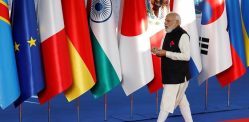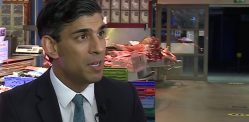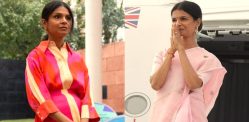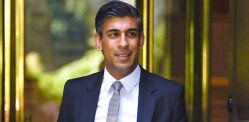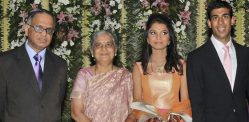"It's a country that is very near and dear to me"
Delhi is buzzing with excitement as Rishi Sunak, the face of British politics, lands in the heart of India for the highly-anticipated G20 summit.
The event is a global gathering of leaders from the world’s 19 largest economies plus the European Union.
In a historic moment, Sunak is the first Prime Minister of Indian heritage to grace the nation with his presence.
No. 10 Downing Street describes this as a “historic” visit, emphasising its significance as a “powerful reminder of the living bridge between the two countries.”
Accompanying the ever-graceful Sunak is his wife, Akshata Murty, who hails from India and is the daughter of one of the country’s wealthiest tycoons.
Together, they bring a dash of glamour and global significance to the summit.
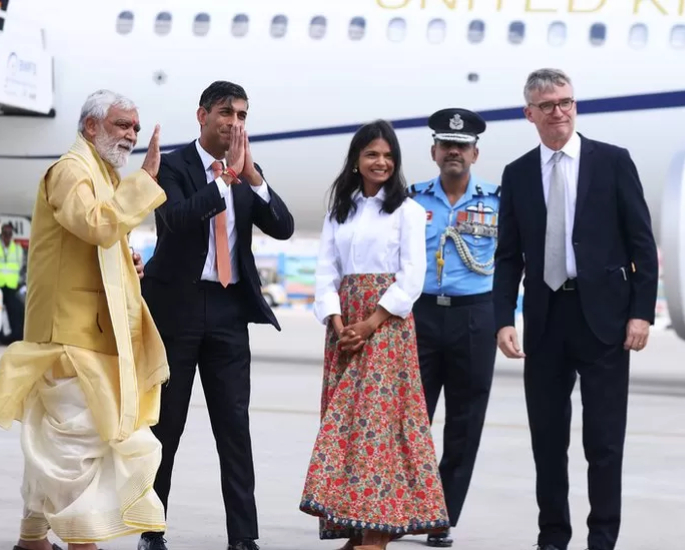
Now, let’s talk G20.
This diplomatic rendezvous might seem like a blend of flavours where the participating nations often have little in common beyond their robust economies.
But that’s the beauty of it! The G20 unites these economic powerhouses, serving as the heartbeat of the global economy.
This 21st-century juggernaut, conceived in 1999 and strengthened after the 2008 financial crisis, fosters discussions that span the spectrum.
However, it’s also the ideal stage for leaders to engage in those “bilaterals,” one-on-one discussions that can sway the course of international diplomacy.
On his way to the summit, Mr. Sunak expressed his excitement, stating:
“[I’m] excited to be back in India. It’s a country that is very near and dear to me.
“It’s obviously special.
“I saw somewhere that I was referred to as India’s son-in-law, which I hope was meant affectionately!”
While the guest list boasts some of the most influential figures on the planet, there are notable absences.
Russian President Vladimir Putin, for the second year in a row, is a no-show.
Sunak didn’t hold back, remarking:
“Once again, Vladimir Putin is failing to show his face at the G20.
“He is the architect of his own diplomatic exile, isolating himself in his presidential palace and blocking out criticism and reality.
“The rest of the G20, meanwhile, are demonstrating that we will turn up and work together to pick up the pieces of Putin’s destruction.”
But the complexity doesn’t end there.
China’s President Xi Jinping is also skipping the summit, and some G20 members are less committed to the Ukraine situation than others.
In fact, the host country, India, continues to purchase oil from Russia.
Prime Minister Sunak will meet with Indian Prime Minister Narendra Modi, and the prospect of a UK-India free trade agreement is on the horizon.
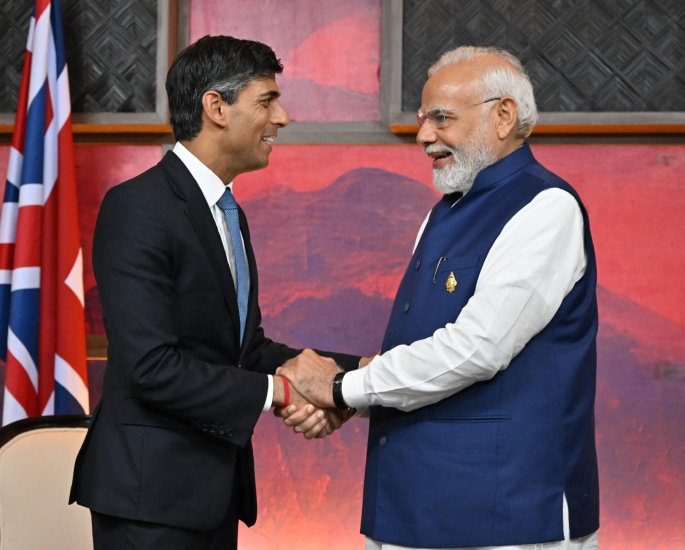
Optimism is growing, with India’s Finance Minister Nirmala Sitharaman hoping for a deal before year-end.
Sunak, however, insists that a deal is “not a given,” emphasising the importance of quality over speed in such negotiations.
The issue of visas with greater flexibility has long been a potential sticking point, but Downing Street highlights that the trade deal focuses on trade and business, with immigration as a separate matter.
In the midst of political debates and diplomatic endeavours, this trip promises more than just politics.
It’s a visual spectacle, rich in symbolism and history, as a British Prime Minister of Indian heritage visits a former British colony.
Sunak’s presence adds an extra layer of significance as India hosts a substantial chunk of the world economy.
The stage is set, the world is watching, and history is in the making.























































